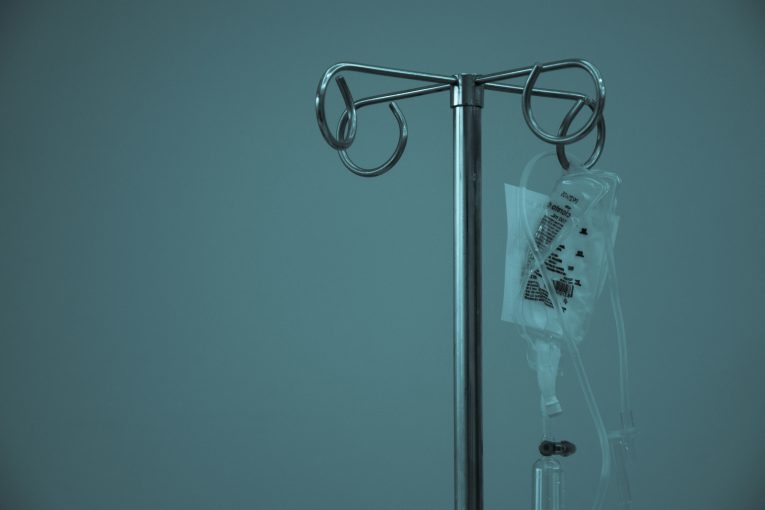A Tribute to the Aug. 9 R.G. Kar Medical College Assault Victim
Trigger Warning: Rape/Mentions of Physical Assault/Sexual Assault
Note: On Aug. 9, in Kolkata, India, a 31-year-old female doctor was brutally assaulted and murdered in the seminar room of her hospital. She had been working there for 2 years, and was inevitably familiar with the location, assuming it to be a safe and welcoming space. On the day of her assault, this doctor had just completed a 36-hour-shift and was going to rest in the seminar room when the assault occurred. As an Indian woman, I feel scared, disgusted and somewhat confused by this gruesomeness, and wonder how the doctor felt during her last moments—as her life of study, hard work and consistent academic engagement flashed before her. In a feeble attempt to give a voice to this thought, I have written—अभया की अंतिम आहुति which translates to The Fearless Woman’s Final Sacrifice. I know that my words cannot do justice to the intensity of pain experienced by the victim, this is but a humble and agonized attempt.
As I rise from the entanglement of blood and skin on the floor of the hospital seminar room and make my way towards the window, I decide to bend worldly conventions and do something that no soul has probably ever done before.
Instead of setting out in search of a new life, I drift above my battered remnants on the ground and examine this shredded body that was once mine.
I begin by running a gentle finger across the bruises on the chest. Positioned at a mortal distance from the wounds, I realize how they might be a byproduct of the hot flashes of pain that the body had experienced when pairs of inch-long nails dug into the belly and gripped the breasts with an aura of ominous accomplishment. The breasts had always been looked upon as protected portions of the female body, and I recollect how worried my mother had been about them as she urged me to keep them covered and subtle.
When the soft—yet prominent—landslide of puberty caused noticeable developments on each part of the body, my mother went out of her way to restrict the obviousness of this growth. Her attempts began with overbearing undergarments, and I recollect her persistence to purchase only those that pushed the breasts deep into the insides of the chest, making it seem as though they never existed in the first place.
In addition to undergarments with sharp hooks that dug their pincer-like grasp into the chest, my mother went on to ensure that the color was as insignificant and unnoticeable as she would have liked the breasts to be. Instead of bright pinks, purples or even blues, I found myself wearing different shades of white with each succeeding hue paler than the other.
Moving onto the legs, I notice how they have been torn apart.
The body was 31-years-old when I left it, and over these three decades of existence, it had performed the act of tearing multiple times. Right from tearing packets of crisps open to ripping the edges of medical school papers that contained painstakingly created diagrams of the human body, the fingers of this body knew what tearing was.
However, before I left the body, I think these now-immobile fingers learned something new. I think they learned that like paper, bodies can also be torn.
As I move back up, I see the eyes—bruised, bleeding and cut-up.
Attributing these ophthalmological injuries to the pair of spectacles on the nose, I recollect how a thick, balled-up fist had punched them into the face. As shards of glass cut into the sclera, a hot stream of blood trickled down from the edges, pooling next to the collarbone.
Irrespective of my limited access to the subconscious, I remember colliding into a wayward thought.
Writing and squirming, the body recollected classroom days where, in a General Anatomy class, it was taught several ways to protect the eye from injury. As the fingers made frantic notes and the brain retained transmitted information, I wonder if they knew that despite learning how to shield—and heal—the most sensitive organs of a human body, they would fail to protect their own.
The door opens, and the father rushes in. He looks at the ripped remains of my once-occupied body with misty eyes, and I position myself close. Even though I no longer reside in the body, and have discarded the title of being “his daughter”—my mortal love for him still persists.
I glide over to observe his face, and observe how it is contorted with confusion. He has spotted two blood-sodden square pieces near the body. Sticking out amidst the clustering anatomical debris, these pieces seem to be absurd extensions of each other. With maternal tears collecting in his otherwise paternal glance, my father bends to pick them up.
A moment later, he stands upright with an almost instantaneous jerk. In his hands, he is holding the ripped-out pocket of a doctor’s coat—gruesomely intertwined with a piece of skin that was clawed out with it.
